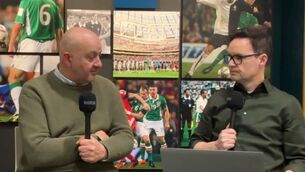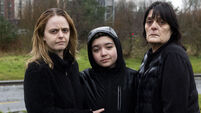Emotional Lynagh grateful to be alive
An emotional Lynagh fought back tears yesterday as he thanked family, friends, the rugby fraternity and fans for the overwhelming support he’d received after being discharged from the Royal Brisbane and Women’s Hospital.
The London-based former Test captain suffered a massive stroke on April 16 shortly after arriving back in Brisbane to catch up with friends.















